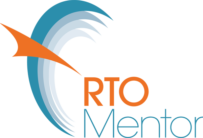
Each assessment instrument may (or should) be supported by a marking guide or profile of acceptable performance and the decision-making rules or guidelines to be used by the assessors.
Before you commence decide on the picture of a competent person, how are they going to demonstrate that to you. this will give you a good idea of the instruments you will select for the unit or cluster of units.
When developing assessment tools focus on how you will collect the evidence that the candidate is competent rather than testing memory or their ability to re-write information you have presented. You are trying to see if they competent and perform it over and over again.
When writing observation tools make sure they make sense to the job role, and the assessor. Change the unit requirements into observable behaviours and group the activities together in a clear and logical manner… Don’t just a cut and paste from the Performance Criteria.
When checking your observations ask yourself the following:
- Is each item directly observable?
- Is there advice for assessors on how to conduct the assessment?
- Is each item focussed on one behaviour?
- Is the order of observations logical?
- Are there descriptors of what constitutes satisfactory behaviour?
- Is their advice for the assessor about what to do if all items are not observed?
If developing questions remember that True/false and multiple choice questions are not strong methods of assessment of competence.
Developing criteria around projects often needs a couple of reviews from various people. The first draft often is missing some vital links. Develop tools that can guide the student into providing the answers you require. Clearly headed tables are excellent ways of gathering information.
| Task performed | How you felt it went | How the other felt | |
| Johnny | |||
| Sam | |||
| Sally |
This tests the validity and reliability of the project assessment.
Finally don’t forget to validate them before you use them.
Thats it for now, happy developing.
